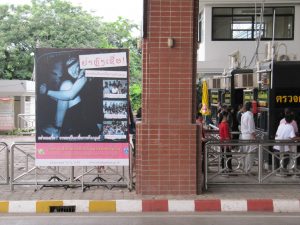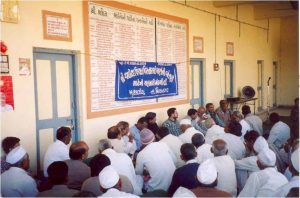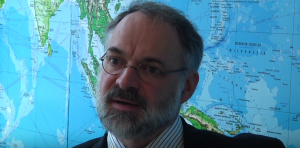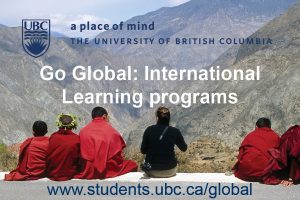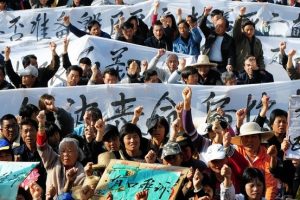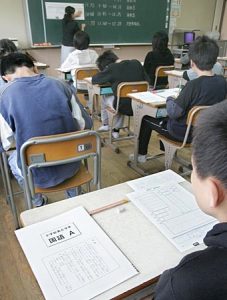Is ‘Safe Migration’ Along the Thai-Lao Border Truly ‘Safe?’
Memo #157 – Since the late 1990s, international organizations and NGOs have engaged with labour migrants in the Mekong region. This includes either advocating for migrants’ rights, or launching anti-trafficking programs. More recently, the term “safe migration” has surfaced within policy circles and the broader aid community with several organizations implementing “safe migration” programs.
Community Natural Resource Management in India: Does it Reduce Poverty?
Memo #156 – A series of new programs in India for community natural resource management (CNRM) is decentralizing control over local resources of water, forests, and inland fishing from government departments to end-users such as farmers, forest dwellers, and fishers.
China – Global Shipping, Coal Usage, High Speed Train Corridors (Video Interview with Dr. Claude Comtois)
Memo #155 – China is a driving force in global shipping, coal usage, and high speed train corridors. Based on a series of lectures at The University of British Columbia in February 2012, Dr. Claude Comtois argues, that in combination these three developments have enormous implications for China and the world.
Asia in the Governance of Outer Space
Memo #154 – In 2011, the United States Secretary of Defense and the Director of National Intelligence called global attention to the congested, contested, and competitive nature of outer space activities. All space powers, including in Asia, continue to struggle with the safety and security of assets that undergird their modern economies, militaries, and societies. The practical issue is how to achieve national objectives, some of which are only possible in collaboration with others.
Taiwan’s Liberal Values may Corrode China’s Authoritarian System
Memo #153 – Hong Kong was returned to the People’s Republic of China (PRC) on July 1, 1997. The island maintained rule of law and civil liberties. Socially, economically, and politically, there has been some degree of convergence under the “one country, two systems” system. Hong Kong has become more open to mainland tourists and students, and in the process taught them the importance of liberal values, such as freedom of speech, protest, and assembly. On the other hand, mainland China has converged with Hong Kong as its economy and society have become far more open than ever before.
Japan’s Culture Industries: Cool or Cruel?
Memo #152 – The world loves sushi, J-pop, and manga. Now the Japanese government is in on the act. The Ministry of Economy, Trade and Industry (METI) has a Cool Japan / Creative Industries Policy, and in January 2012 launched Cool Japan Daily, a blog introducing Japanese pop culture. Behind all this are ambitious plans to increase Japan’s share of the global market for culture industries. It tends to be uncritically assumed that pop culture will enhance the Japanese national image, too. The current popularity of music groups such as AKB48 outside Japan indicates the potentially lucrative and beneficial aspects of pop culture promotionalism. But evidence from some international media suggests the need for caution.
Regulating International Student Mobility – Agents and Markets in New Zealand
Memo #151 – International student mobility is a huge industry. 3.3 million students studied outside of their country of citizenship in 2008. In some countries like Australia and New Zealand, international students represent about 15 per cent of total post-secondary enrolments. Student mobility is often conceived as a straightforward exercise in demand and supply. Students willing to pay the costs of overseas study represent the demand. Educational services provided by post-secondary institutions – many facing reduced state funding – represent the supply. This free market model ignores the multitude of mediating actors involved in student mobility.
Protests in China: Oppositional, or a Reflection of Faith in the System?
Memo #150 – Protests in China are often assumed to be ultimately aimed at regime change. But while protests reflect grievances, they also demonstrate faith that the state will respond to protesters’ demands.
National Testing in Japan and Australia: To Publish or Not to Publish Scores?
Memo #149 – On this April 17, 2012, in Japan, around 30 per cent of years 6 and 9 students have undergone national standardized testing. But Japan isn’t the only country to introduce tests as part of policy efforts to improve student performance. In fact, all advanced countries use tests to assess potential workforce knowledge and skills with an eye towards raising national productivity and surviving global competition. But the exact nature of testing regimes differs per country. For example, Japan and Australia use different mechanisms to direct individual schools towards national goals.
同化と差異化が同時進行する世界の教育政策: 学力テストの日豪比較から
Memo #149 – 今日、全国の小学校と中学校の約30%を対象に全国学力・学習状況調査(以下「学テ」)が実施された。もちろん、こうした全国的な学力テストを導入して学力の向上を図る教育政策は、日本に限ったことではない。グローバル化した「知識経済」において、国の経済的生産性を高め国際的な競争に生き残るには、労働者の知識・技能レベルの底上げが不可欠であり、そのためには全国学力テストを通じて教育の質を向上する必要がある、というのが先進国に共通する政策的見立てである。
